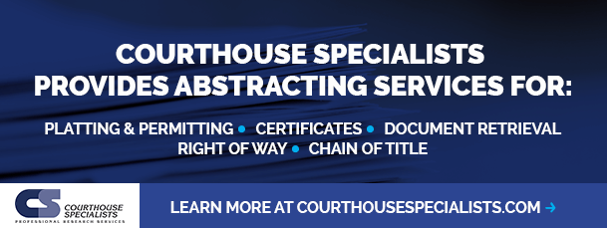
Before investing in any kind of real estate, it is imperative to conduct thorough research into the property you intend to purchase. Luckily, most of the information you’ll need is accessible for free or at minimal cost if you know where to look. Most real estate information providers will supply free property reports that could include the home ownership history, tax record, and mortgage information.
This research will help you be certain of your investment before it’s too late. Hidden details in the history of a piece of real estate could become costly problems down the road, and the real estate record can help you gauge a fair price for the real estate. To be certain of your next purchase, you should understand how to use public records to search for real estate information, particularly liens.
Understanding Liens
Liens are security interests over pieces of property to ensure the payment of a debt or meeting some other sort of obligation. A lien against a piece of real estate can be a major issue over time. Liens make it extremely difficult to sell real estate in the future, and removing a lien can be very costly. If there is a lien against a piece of your real estate, your title is legally “unclear,” meaning you technically don’t have complete legal ownership of the property until the lien is removed. Many creditors use liens as a cost-effective way to collect on debts.
When a creditor decides to collect on a lien, the property in question must be paid in full before the liens may be cleared. This means any existing mortgage on the real estate must be paid entirely before the liens are cleared. Creditors typically try to wait until the owner sells the property to collect on liens, and the sellers will use part of the purchase amounts to pay off the liens.
If the creditor attempts to sell the real estate through a foreclosure sale, the creditor must continue making mortgage payments on the property or risk losing it. Waiting for the homeowner to sell the house takes longer, but it works out in the creditor’s favor far more than a foreclosure sale.
Types of Liens
Liens typically fall into two categories – voluntary and involuntary. A mortgage is a type of voluntary lien: The homeowner agrees to the mortgage, and there is no negative impact because it is a contractual agreement. Voluntary liens such as mortgages do not affect the property, the title to the property, or the ability to transfer the title.
Involuntary liens result from failure to pay debts such as tax bills or mechanic’s liens (from unpaid home improvement invoices). Involuntary liens make it difficult to sell your property since a creditor has a stake in the property. It’s important to note that it is technically possible to transfer a property title with a lien, but buyers will not want to purchase the property without clear title. Sellers must remove liens to sell property more easily, and buyers will not want to purchase a property with unclear title.
Performing a Public Record Search
Luckily, you have several resources available if you want to research a piece of real estate for lien information. Liens are matters of public record, meaning they are accessible if you know where to look. Here are some of the best methods for finding the lien information you need:
- Perform an online search. Thanks to the wonderful advances in technology, many government agencies at federal, state, and local levels now store public records digitally, and you can access them through your county recorder, assessor, or clerk’s office website. Typically, you only need the address and property owner’s name. However, many counties have yet to put their public record data online, so this option may not be available depending on your location.
- Visit in person. If your county clerk, assessor, or recorder doesn’t have public records available online, you can visit his or her office in person. The staff should be more than happy to assist you in your search and point you in the right direction.
- Work with a title company. Working with a title representative can be hugely helpful as you conduct your property research.
Once a lien is removed, the property title is clear. Clear title makes it far easier to sell a piece of property, so it is vital to find out all the lien information on a piece of real estate before purchasing it.





















